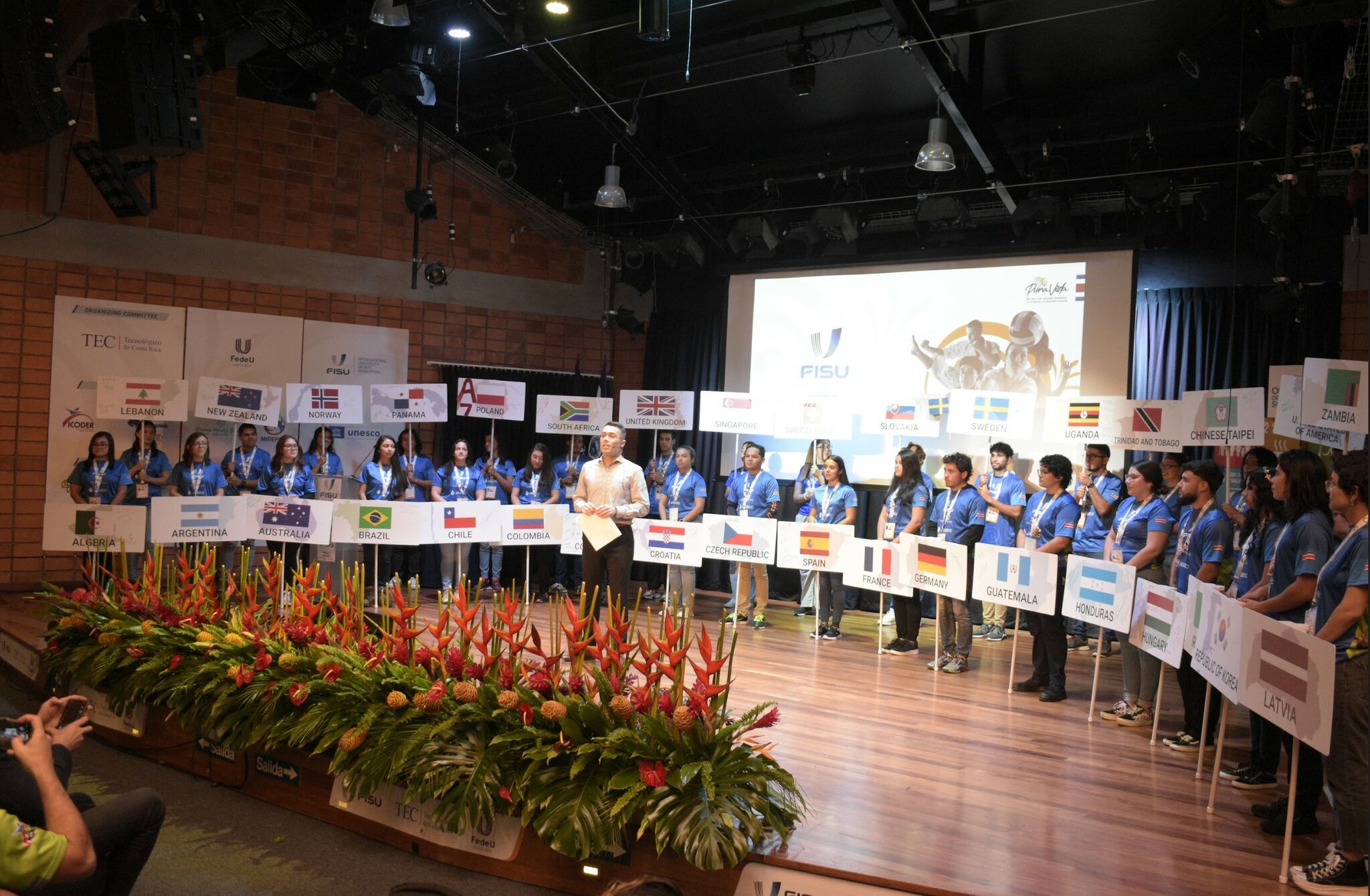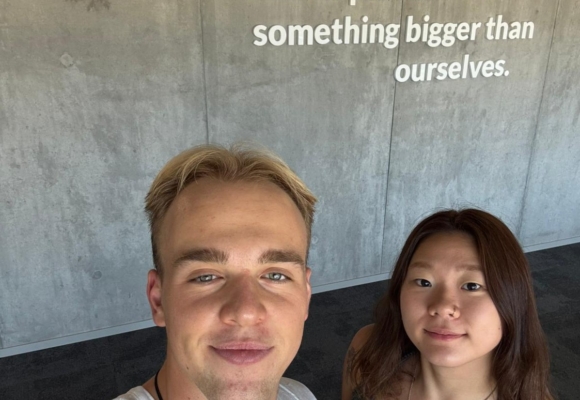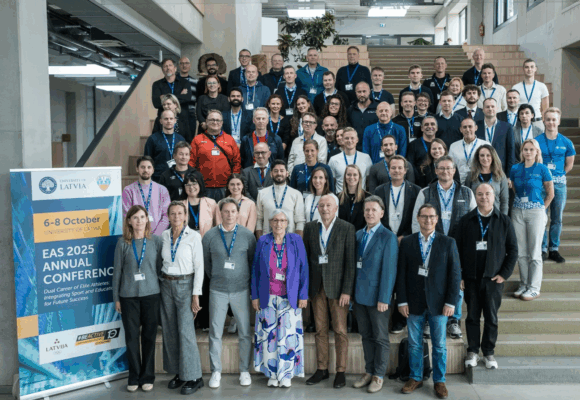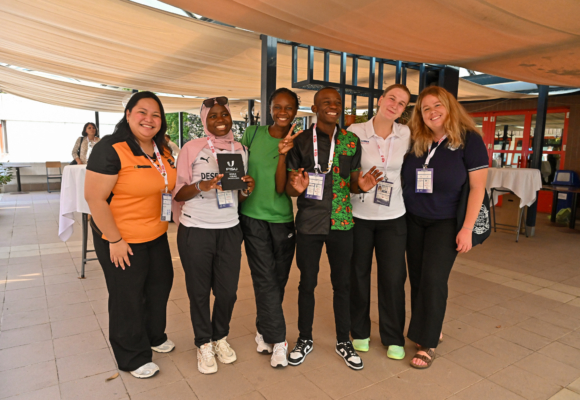The 16th FISU World Forum has closed in Cartago, Costa Rica after an intense week of presentations, discussions, workshops and various activities related to increasingly important themes such as sustainability, gender equality, well-being, good health and reducing inequalities.
“The FISU World Forum is a space for participants to benefit from the many opportunities for exchange, contribute with their experiences, take an active part in all the events and get in touch with each other,” said FISU Acting President Leonz Eder.
A total of 160 participants from 45 national university sports federations attended the event physically and many more followed it online.
On the initial day, Verena Burk, Chair of FISU’s Education Committee reminded everyone that “sustainable development means meeting the needs of the present in such a way that the opportunities of future generations are not restricted.”
“We believe that there is a strong commitment of the university community to integrate sports into all aspects of education and really into all areas of society, because sports have many many beneficials effects for sustainable development,” added Alexander Leicht, Director UNESCO Central America.
On the second day, Mary Munive Angermülle, Costa Rican Vice-President and Sports Minister, stressed the importance of increasing the practice of sports and better educate people on the concept of recreation and using free time for sport.
“Sports is the magnet that brings students together, even more so after the pandemic that affected us all. Sports practice must be more equitable, because it generates all the positive values and physical abilities of young people,” said Rodrigo Arias, President of the National Council of Rectors in Costa Rica.
An expert panel talked about the importance of good health and well-being to succeed at university, and the utmost necessity to provide adequate infrastructure for sport and recreational activities.
“Everywhere students are key for the growth of institutions, sport is absolutely essential for their education and they must not accept this to be challenged anywhere and for whatever reason,” it said.
After an intermezzo that allowed participants to enjoy the natural wonders of Costa Rica in the Volcan Irazu National Park, gender equality was toping the fourth day’s programme. Speakers included Gisselle Burbano, UNESCO Specialist, Rosaura Mendez Gamboa, Member of FISU’s Executive Committee, Arnaud Richard, Member of FISU’s Education Committee, and Marissa Langeni, CEO University Sport South Africa.
“Feminine sports must receive special attention, we must develop programmes encouraging team spirit, networking, help students love sport, otherwise young girls will continue to reject sports for other activities,” said Rosaura Menez Gamboa.
“Societies are built in such a way that their patterns are not criticized and this applies to sport as well. We need to make people understand that sport should be a motivator and a facilitator for gender equality,” added Gisselle Burbano.
For the UNESCO High Representative, it is vital to work at the community level: “The community level is key to deconstruct the toxic masculinity in societies.”
Marissa Lengeni agreed: “Sport is projected as a product positioned as a male activity. Very early, young girls are exposed to male sports only. So the visibility of female sports is absolutely critical to change their perception,” she said.
“To encourage young girls to practice a sport, it is also important to show them that it can be a recreational activity, not only a competitive thing,” she added.
She further stressed that “to play sports, girls need to be in a safe environment, to see female athletes, coaches and referees, because they are like them and this gives them a feeling of security.”
Reacting to the fact that the participation rate of women in sport competitions reaches 45% globally but only 4% are seen in the media (print and broadcast), Arnaud Richard commented: “In France, the coverage of feminine sports reaches 18%, which is still not enough. But we need to think about quality, because increasing broadcast with misogynistic commentary is even more disastrous.”
“Only 13% of the French sport journalists are women, so increasing their number will help improve positive coverage of feminine sports,” he said.
And when presented with the other fact that in 2016, 92% of leadership positions in international sports bodies were still occupied by men, he replied that “Paris 2024 was showing things could change as it will be the first Olympic Games with an exact gender equality in athlete participants.”
Yoan Noguier, co-founder & Managing Director of Yunus Sports Hub, made a presentation on the theme of Social Business and Sports during which he insisted on the importance of entrepreneurship and social responsibility in sports, to reduce inequalities.
He also stressed that “we must capitalize on the attraction of sports, the huge audience it generates, capitalize on the infrastructures it creates, to ultimately gather young people around sports.”
At the end of the event, students presented their ideas and projects linked to the issues discussed during the week.
In 2024, the FISU World Forum will take place in Zagreb, Croatia.



